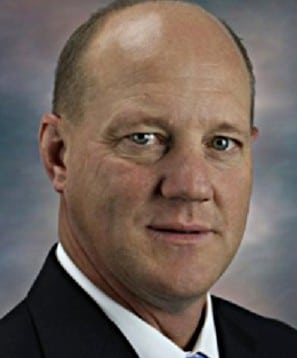
The old saying “A sale is never complete until they sign on the dotted line” is true, to a point. In reality, the sales cycle is never really complete until — you get paid!
As a media sales rep, collections are part of the responsibilities, but for many, it can be a very difficult and stressful task. And when not handled properly, it can cost everyone involved — the sales rep, the radio station, even the client — a lot of money, time, heartache, and reputation. So how can you become a better collector and make the process easier and less stressful?
Step number one, the collection process should take place before your client commits to your proposal, or immediately after they say yes. Getting the first few months paid in advance and/or having credit applications completed will go a long way in making sure your clients know you’re serious about having the invoices paid on time.
Fear is the main reason sales reps do not like to have the payment process conversation. They fear two things: one, that they will offend the client by suggesting they don’t trust them, and two, they fear that the client will say no at the last minute and they will lose the sale.
If you choose to have the conversation after the client has agreed, here is an example of how to do that:
“Mrs. [Client], I appreciate your trust in myself and my radio stations to help you with your business. Going forward, here is what is going to happen. Your ads will start to air on [date], and they will run through [date]. Around the 3rd or 4th of the month, we will send you an invoice. We ask that you have the invoice paid no later than [date expected]. Does that work within your payable process?” Whatever their answer is, confirm by saying,
“Perfect, I will look for your payment to clear on [date a few days later].”
To give a couple of extra good pumps of grease for your squeaky wheel, we suggest, if possible, you hand-deliver the first invoice and go over it with the client in detail, restating the invoice due date and confirming that it works for them. I can assure you most sales reps do not do this; because you did, your invoice will be given higher priority and you will be deemed as more of a professional than your competitors.
Luckily for those involved in sales, 98 percent of business owners are honest and sincerely intend to pay their bills. There are the 1 percent that are, well, just dishonest or bums and never intend to pay. Then there are those that fully intend to uphold their end of the deal but for many reasons (or excuses) have a hard time. This is where you need to be gentle when applying the grease!
First, determine if they are being honest and up front about why they are not able to pay the invoice. From there, determine your plan of action. Experience tells me being nice is far more effective than playing hardball.
If you feel their reason for not paying is legitimate and honest, indicate that you are willing to work with them, but that it’s important that they keep the lines of communication open. You can’t help them if they don’t talk to you. If the lines of communication slide or go dark, apply more grease.
As they continue to dodge your calls, apply heavier loads of grease (more aggressive conversations with date deadlines) by leaving voicemails and e-mails saying, “Mr./Mrs. Client, the only way I can help you is if you reply to me. If I don’t hear back from you by [specific time] on [specific date], you’ll leave me no other choice than to take further action. Please give me a call by [restate day and time].”
Always be very polite and professional. People that tend not to pay their bills also tend to make up and fabricate stories (lies) about the business or person that is trying to collect. The goal is to get the money and at the same time try to make sure they are still speaking
highly of you and your station at the end of the collection process.
If you’re honest with yourself, you can typically spot the risky ones long before they agree to the advertising schedule. Have “the talk” with them in advance — or run like hell and you’ll save yourself and your station time, money, heartache, and reputation!
The squeaky wheel really does get the grease!
Rick Fink is President of ENS Media USA and business partner with Wayne Ens of Ens Media Inc. Rick can be reached by e-mail at [email protected].






Hi, after reading this awesome paragraph i am as well cheerful to
share my know-how here with colleagues.
Two points. One, if the goal is to create a long-term client, then the sales cycle is never really complete because you’re building a relationship, and that shouldn’t end. The only exception to that would be a one-time deal, in which case you should get paid upfront. Second point, collections should be managed with an eye to keeping receivables to the Current & 30-day columns only. Any longer than that, and you not only risk not being able to collect at all, but also risk losing a long-term account, as the focus will organically shift from helping them become wealthier, to hounding them for short-term money. And loyal long-term clients are tough enough to come by.
A well-written, useable article.
It also helps to have the station bookkeeper or someone assigned to that function make phone calls the third week of the month when A/Rs are about to hit 60 days. Give her/ him a written script and get a date-of-expected payment from each. This keeps the sales rep out of it until past 60 days and makes the collection more of an office function at that point. After 60 days, the sales rep must go out and get checks-no more promises. Once a past due hits 90 days-no commission. Salespeople need to know that there really is no useable profit for the company in collections received after 90 days.